
Politics
12:20, 22-Jan-2018
Germany coalition talks: how far away is a new government?
By John Goodrich
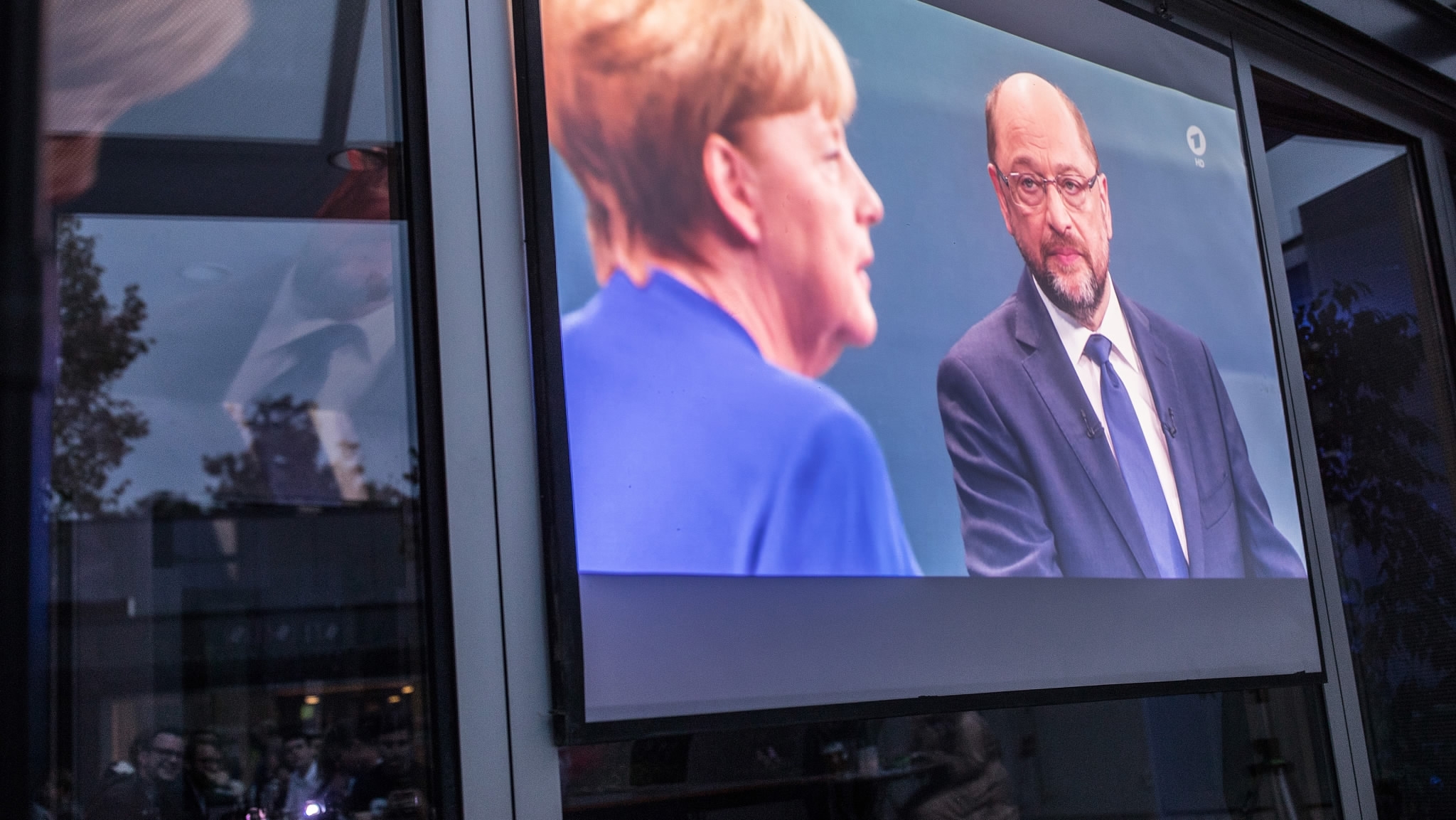
Germany has edged closer to forming a government after nearly four months of impasse, with formal talks between the Social Democrats (SPD) and Chancellor Angela Merkel’s bloc imminent.
SPD delegates narrowly voted to press ahead with negotiations on Sunday, yet the tepid support means a final deal is far from guaranteed and fresh elections could still be needed.
The first meetings on how to organize negotiations are expected to start on Monday.
Why has the SPD agreed to talks?
SPD leader Martin Schulz vowed to take his party into opposition after its worst result since Germany became a federal republic in 1949 in September’s federal elections, which saw a surge in support for the far-right Alternative for Germany (AfD).
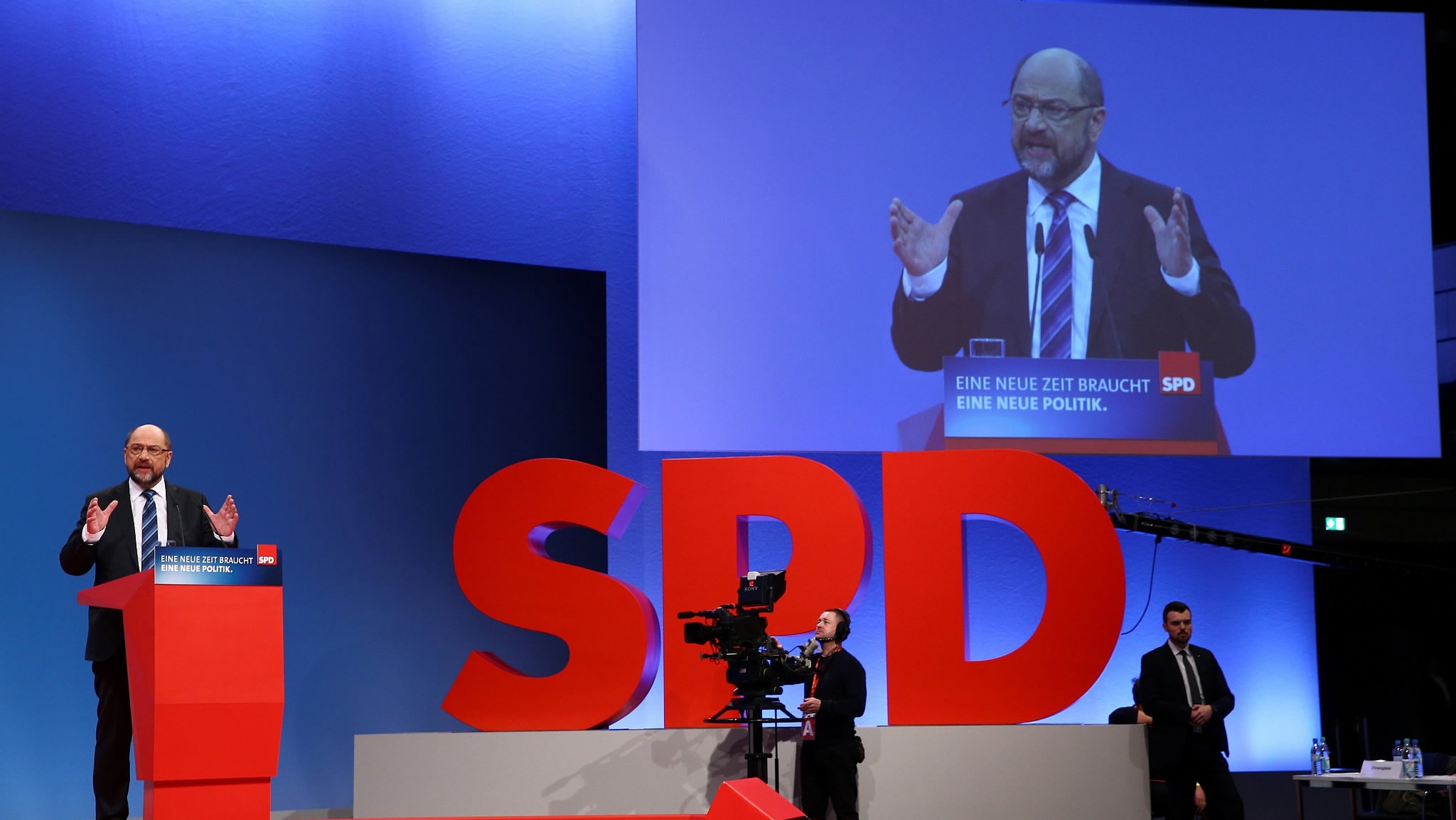
Germany's Social Democratic Party leader Martin Schulz. /VCG Photo
Germany's Social Democratic Party leader Martin Schulz. /VCG Photo
However, after Merkel’s Christian Democratic Union (CDU) and Bavarian allies the Christian Social Union (CSU) failed to put together a coalition with the Free Democrats and Greens, Schulz agreed to pursue talks with the SPD’s former coalition partner despite resistance from within the party.
Many SPD members believed the party needed time in opposition to reenergize after the poor showing in September.
A narrow majority of SPD delegates, 56 percent, voted on Sunday for formal talks with Merkel.
What’s in the coalition blueprint?
The CDU/CSU talks with the SPD will be based on a blueprint established during informal discussions earlier in January.
The 28-page document promises more spending on childcare and education as well as joining France in its push to overhaul the EU.
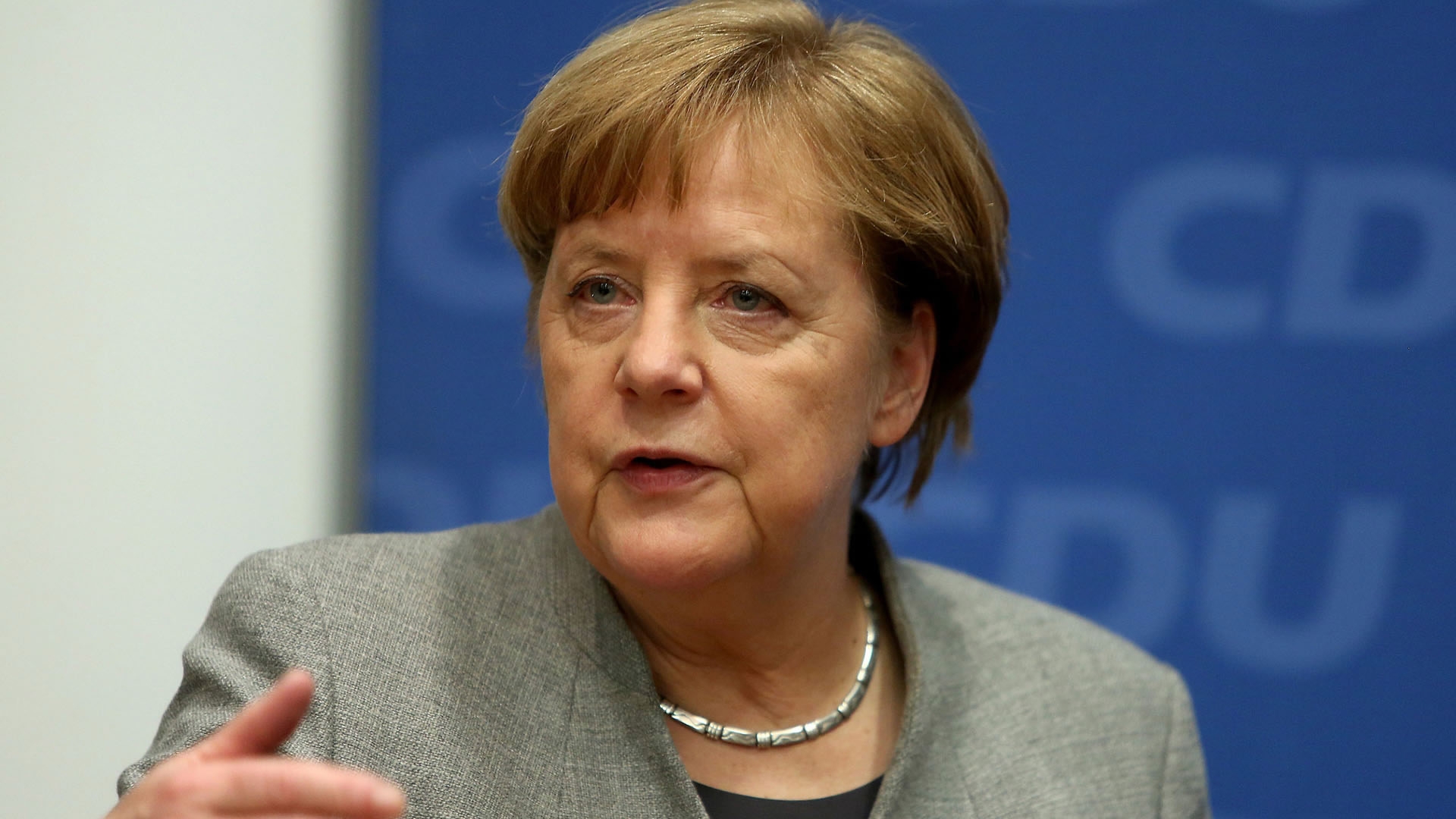
The framework has been criticized by some SPD members for failing to deliver campaign pledges and conceding too much to the CDU/CSU, as well as omitting a standout policy with which the SPD will be associated.
It does include a clause that envisages a review of the next government's progress after two years, leading to speculation that Merkel could step down in 2020.
What does the SPD want?
The split SPD vote is likely to force the party's leaders to negotiate harder in talks, especially given that the delegates will also be polled on any final deal.
Schulz, the former president of the European parliament, said the vote handed him a "duty to fight for all those who had voted against." The SPD's parliamentary leader Andrea Nahles vowed to negotiate "until the other side squeals."
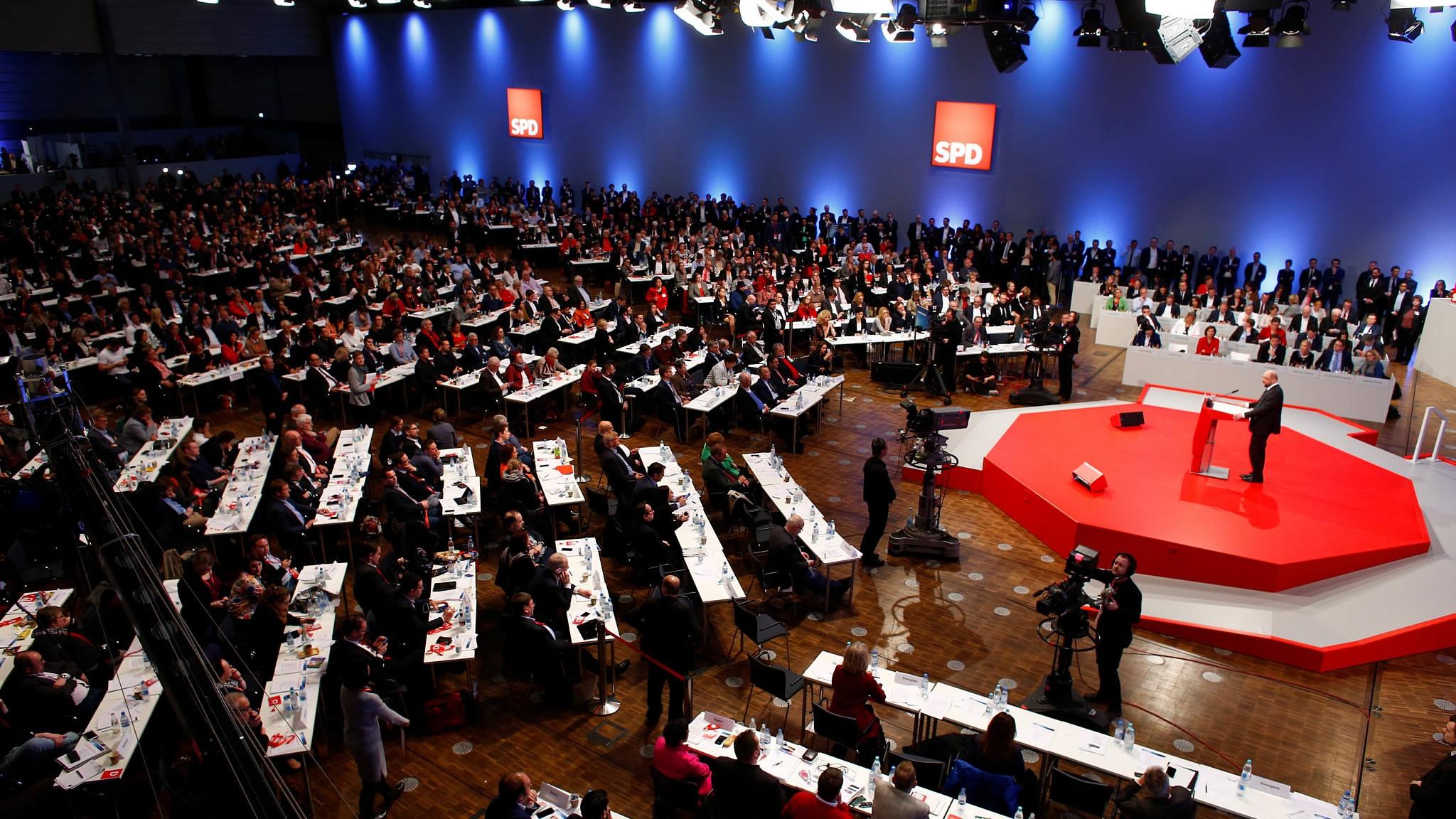
Germany's Social Democrats' party congress in Bonn, Germany on January 21, 2018. /VCG Photo
Germany's Social Democrats' party congress in Bonn, Germany on January 21, 2018. /VCG Photo
The SPD leader has promised to push back on a call to cap migrant arrivals at 200,000 a year and press for family reunions for asylum seekers, as well as fight for a restructuring of Germany's two-tier healthcare system and an end to temporary rolling work contracts.
The pro-EU party also strongly supports French President Emmanuel Macron’s proposals for reform of the European bloc.
Schulz said on Sunday that Macron was “waiting for a partner” and urged delegates to seize the chance to deepen European integration.
What does Merkel want?
Merkel wants a renewal of the grand coalition that has ruled Germany since 2013, but has insisted that the coalition blueprint cannot be fundamentally changed.
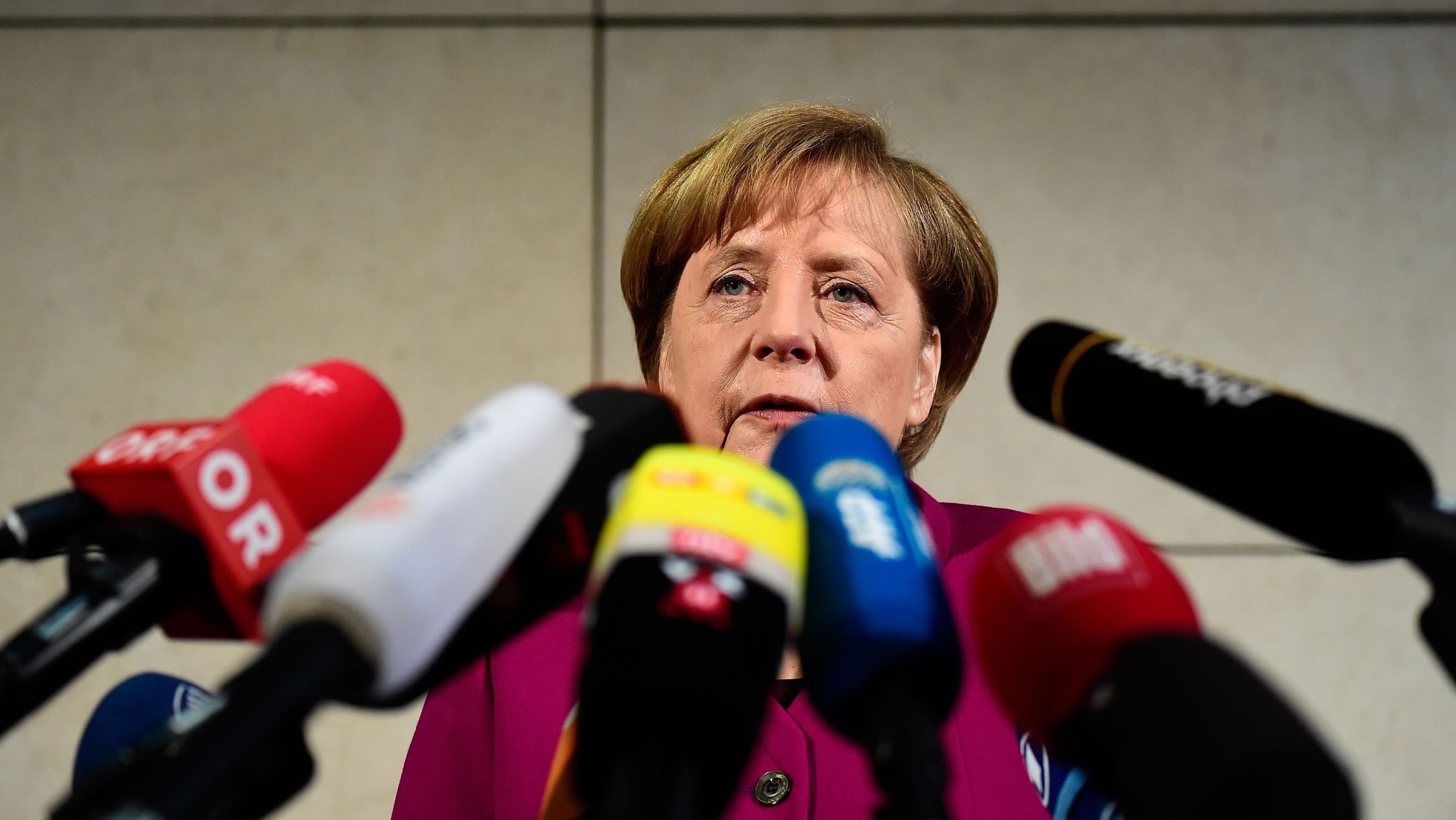
German Chancellor Angela Merkel. /VCG Photo
German Chancellor Angela Merkel. /VCG Photo
“The grand coalition paper is the framework in which we will negotiate,” Merkel said on Sunday. “A lot of questions will have to be clarified in detail and this will require intensive deliberations.”
The chancellor is under pressure to take a harder line on migration after losing voters to the anti-immigrant AfD in September. She has said her priorities are preserving Germany's economic strength and ensuring social justice and security.
What happens next?
Merkel, Schulz and the leader of Merkel's Bavarian allies, Horst Seehofer, are expected to meet on Monday and the full talks may start as early as Tuesday or Wednesday.
Seehofer has said he expects a new government to be in place in the first half of March.
A return of the grand coalition would mean the AfD becoming the main opposition in the Bundestag, the German parliament, giving a bigger platform to the right-wing party.
Any formal grand coalition agreement must be approved by the SPD’s 443,000 members, however.
If an acceptable deal cannot be reached, Merkel could look to form a minority government with the Greens but is more likely seek a mandate through new elections.
7833km

SITEMAP
Copyright © 2018 CGTN. Beijing ICP prepared NO.16065310-3
Copyright © 2018 CGTN. Beijing ICP prepared NO.16065310-3